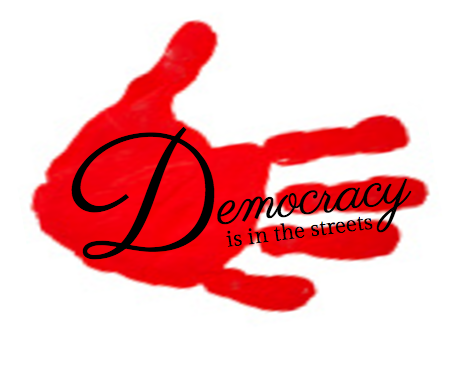When division manifests, the people must pursue solidarity
We must listen to the mosaic of voices across the nation
January 21, 2017
Two hundred and forty years ago, brilliant minds from twelve of the original thirteen states shuttered themselves away in a Philadelphia convention hall; they were in ardent pursuit of crafting a document which harbored the ideals of the revolution that had shaken the world. Within the articles of this Constitution lay the foundation of the newborn republic, bursting forth into a world where blood splashed across battlefields for the sake of the hallowed vote. Democracies were wreaking havoc among the kings and aristocrats as monarchy met its match. In 2017, we are the product of that very experiment, one introduced by the Athenians and adopted by those frustrated souls seeking freedom from oppression.
As the 45th president placed his hand on Lincoln’s Bible and swore his oath to office, I found myself pondering what Hamilton or Madison or Washington would think of their country. After all, Washington did offer a weary harbinger to political factions in his lionized Farewell Address. Today, we are a divided America, one which amplifies the disparities in race, sex, and creed. We hear Republican or Democrat, liberal or conservative, and we inherently prescribe notions to each other before we even commence the dialogue. In a country constructed on the premise of compromise, we persist in our ideological discrepancies with such fervor that they rob us of our ability to even fathom meeting each other halfway.
This divisiveness was manifested in the election of 2016 in a myriad of platforms: late night television shows, Facebook Live videos, raging Twitter wars, streets engulfed in the flames of protest, and the disparaging rhetoric spewing from the hearts of movements. This is not a white problem. It is not a black problem. It is not an issue of the LGBTQ community, the social justice warriors, the alt-right, the feminists, the working class, the affluent, or the impoverished. This is America’s problem. Each of us, whether we voted blue or red or not at all, bear the banner of blame, for we refused to understand one another. We told each other to shut up and sit down when we didn’t like what we heard, when our convictions were challenged. For we are a largely uninformed or ill-informed people who submerge ourselves in cognitive isolation, depending on the crutch of belief perseverance. We are terrified of being wrong, of hearing that we may in fact not be looking at the whole picture.
As a nation, we suppressed the discussion before it even began. We did not have the courage to open our minds and listen to the tremendous mosaic of voices comprising this country. Coastlines ignored Middle America, Southerners ignored Northerners, the ostentatiously rich turned a blind eye to the poor, and the white-collar workers shut their ears to their peers in blue-collars and work boots. Rather than coalescing as a united body, we found fault in our fellow Americans, claiming it was anyone’s fault but ours.
Donald Trump did America an incredible service, not in policy, not ideas, not in rhetoric, but in revealing the division which now stands in the conspicuous light of day. As his supporters rallied, the dissenters marched. Our republic wallows in a second Gilded Age, the era of the elite and the political machine boss, of money politics and half-promises never delivered. And so with his hand on the Bible, Donald Trump assumed the presidency as the twenty-first century’s Dorian Gray with the demagogue’s tongue, the man who has the capacity to make us look in the mirror.
We cannot afford to stick our heads in the sand, to wallow in idle dissatisfaction or triumph; we must be louder. We must demand attention using the democratic practices sewn in the American fabric through the likes of the Women’s March on Washington. This is the hour of democracy storming through the streets, igniting the masses into believing once again that our form of government is a participatory sport. We must also be willing to participate in conversations in which we not only speak, but listen.
We have survived the Civil War, the presidency of Rutherford B. Hayes, the Great Depression, the McCarthy Era. We persisted against the first Gilded Age and we can do it again. With each threat to our democratic ideals, we have been emboldened by our strength and resilience. We are a nation where the people can harness the power of solidarity and perpetuate the ideals our delegates designed in Independence Hall all those centuries ago.
America is a transcendent and fascinating idea, an experiment in thought that shook the world, and one we bear the responsibility of perpetuating. We cannot take this republic for granted.











Jane Betar • Jan 24, 2017 at 7:53 pm
Nice article Carey Davis. I thoroughly enjoyed reading it while looking for reasons not to grade exams tonight…articulate, thoughtful, poignant. I don’t think I know you but thanks for a great column.
Carey Davis • Jan 24, 2017 at 8:28 pm
Thank you so much, Ms. Betar!
Hope Hall • Jan 22, 2017 at 6:51 pm
YES! So thoughtfully written and especially love you last paragraph.
Carey Davis • Jan 22, 2017 at 9:49 pm
Thank you so much, Hope!